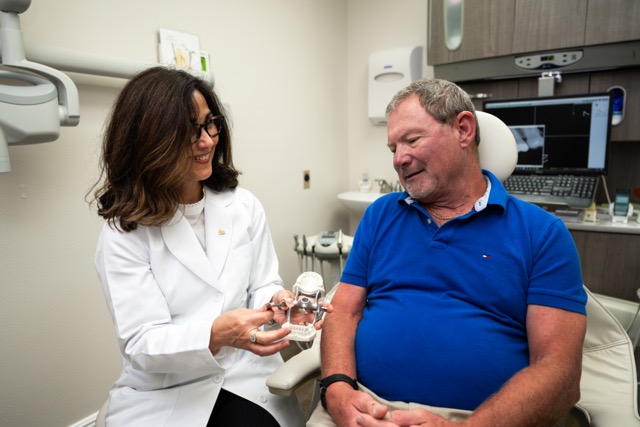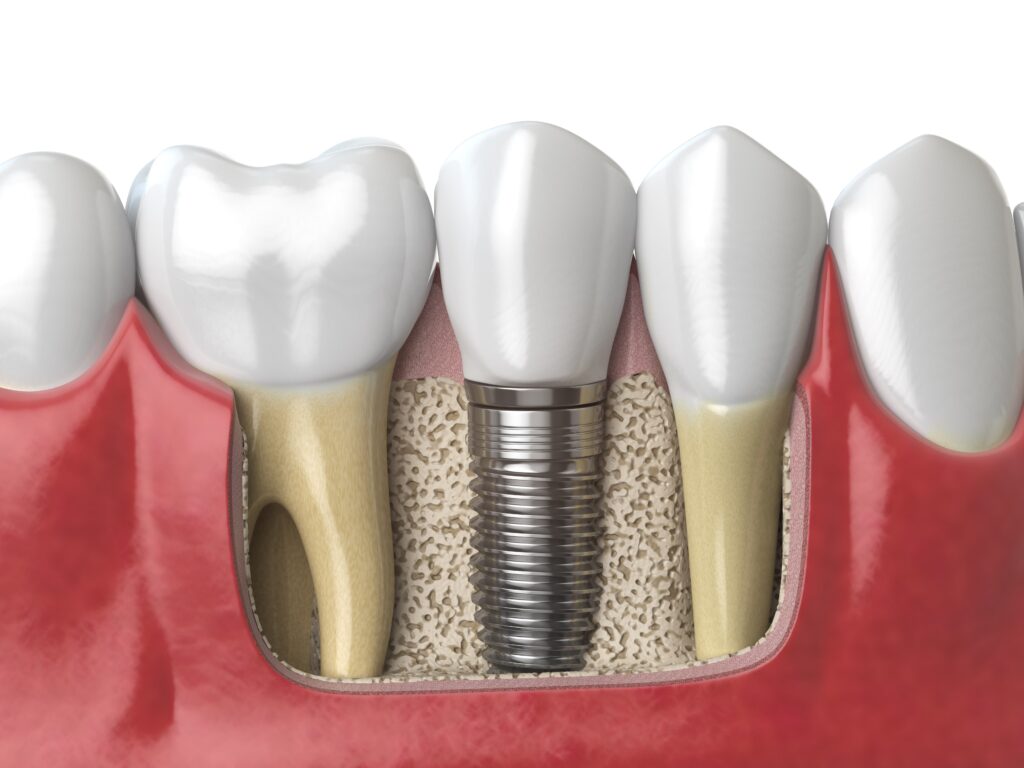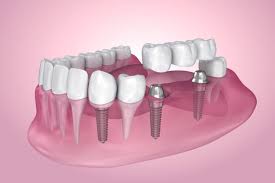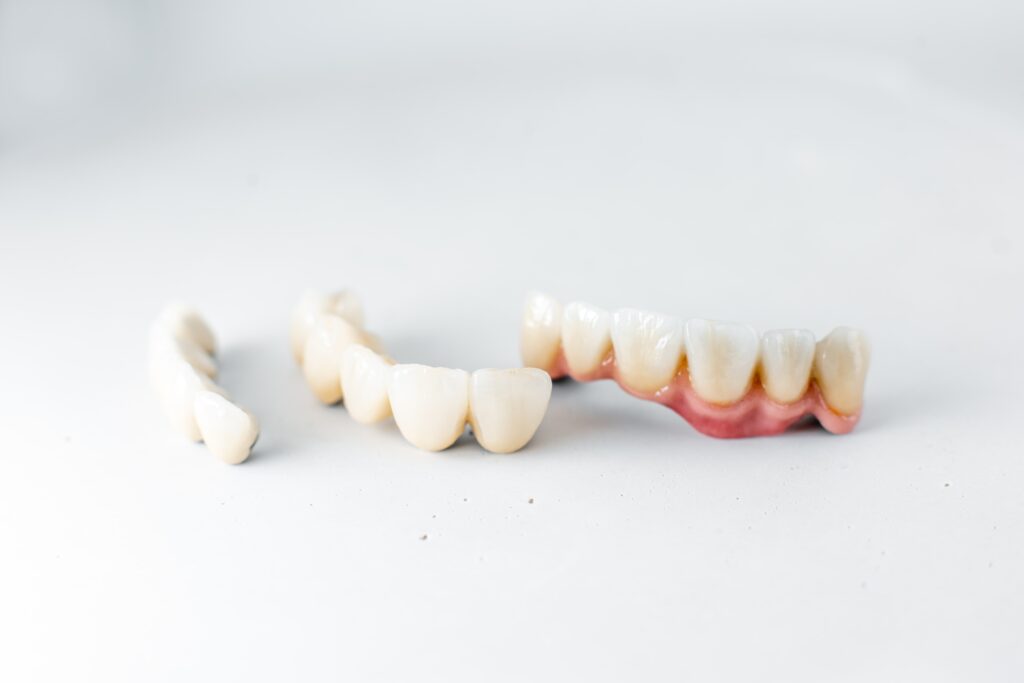


Dental Implants are a great advancement in dentistry as they permanently replace missing teeth in a way that no previous dental technique was able to accomplish. Implants are anchors made out of the strongest titanium materials, that are implanted into the bone and then covered with a cap or denture.
They are stronger than a natural root and will never require a root canal or filling. An implant will help maintain the health and shape of the bone in the jaw area, and neighboring teeth do not need to be filed down to make room for it.It is imperative that the dentist performing the implant be experienced and skilled in all the proper techniques of implant dentistry. When done successfully, an implant will result in a comfortable and natural looking tooth, thereby providing a permanent solution to a missing tooth.

fixed bridge is a non-removable structure that replaces missing teeth and spans the gap between teeth. The process involves preparing the supporting teeth by placing replacement crowns on them and taking an impression for the bridge. The bridge, typically made of metal and tooth-colored porcelain or all-porcelain, is then cemented over the prepared teeth.
During the process, temporary acrylic bridges are used to protect the teeth. Fixed bridges can look natural and match adjacent teeth, and they allow for comfortable chewing. The procedure is usually not painful, and sensitivity after placement is temporary. Fixed bridges have a successful track record and can last for many years.

A removable bridge, also known as a denture, is a replacement for missing teeth and surrounding tissues made of acrylic resin, sometimes with metal. There are two main types: complete dentures for those with all teeth missing and partial dentures for those with some natural teeth remaining.
Complete dentures can be conventional or immediate, depending on when they are made and inserted. Immediate dentures are inserted after tooth removal, while conventional dentures are made after tissues have healed. Overdentures fit over a few remaining natural teeth or implants for stability. The denture process takes about a month and involves several appointments. Denture wearers may experience initial discomfort and need time to adjust to eating and speaking with the dentures. Denture adhesives can provide additional retention for well-fitting dentures, but poorly fitting dentures should be adjusted or replaced to avoid discomfort and sores.
